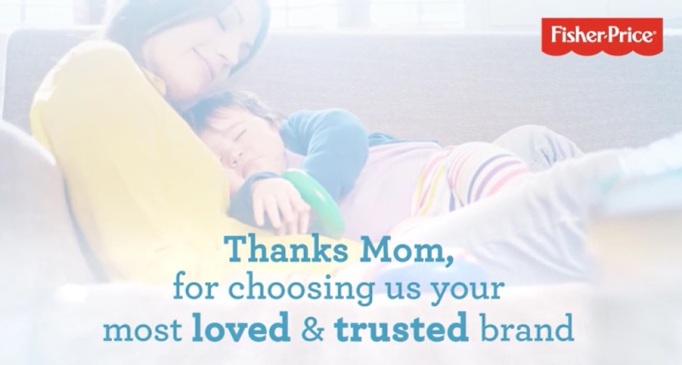For many Christians, the four-week Advent season is time of expectant waiting and preparation for Christmas. The strong emphasis on waiting is similar to how Jesus’ parents – Mary and Joseph – waited for their child to be born, which is, of course, fully comparable to any parent today waiting on the birth of a child.
Waiting isn’t always fun, but that’s exactly what dads have been doing for several Christmases now, and it has nothing to do with pregnancy. They’re waiting for Fisher-Price to acknowledge them as equal parents and users of their products.
It’s at the Fisher-Price website where it showcases a video (scroll about halfway down) undermining dad as not only a parent, but also as a customer – a cardinal sin of any business.

The video warmly thanks moms for choosing Fisher-Price as the most loved and trusted brand — a wonderful gesture — yet Fisher-Price happens to forget someone. Awkwardly enough, the video highlights two fathers during its one minute montage.
All of it is like being at a party where the host only greets and speaks with the wife, not the husband.
But equally surprising is that this video was based on a 2015 survey, which begs two immediate questions:
- Why survey only moms? In today’s dual-income, online shopping world, dads have a major impact on the state of today’s retail industry. Modern families have progressed to the point that it’s not just mom spending the family’s income – it’s dad, too. In addition, statistics prove that holiday shopping is consistently shared by both parents who want to have equal input on gift buying.
- Why has this video remained active for two years? That’s a long time for Fisher-Price to thank only one-half of its customers and ignore the rest, especially when we’ve tweeted them several times over the years, with no response.
Unfortunately, the video isn’t the only exclusion Fisher-Price exhibits. Its online commerce store remains consistent in ignoring fathers as important nurturers and members of the family (photo right).
Fisher-Price was founded by three individuals, two of whom were men, and together devised a mission to “keep enriching the lives of young families.”
If they’d like to honor their past and fulfill that mission, perhaps Fisher-Price could make a quick revision and respect the many breadwinners whose income went toward the purchase of a Fisher-Price product.
Dads have waited long enough. It’s time for change.





 only that dads can’t bake, but can’t even handle
only that dads can’t bake, but can’t even handle  We implore Unilever and Country Crock to take a strong look at how dads are treated and used in their marketing. Now is the time for its creative agency to view dads with a clean slate by erasing all the myths and misguided labels, which drag fathers down from being viewed as equal and adept parents.
We implore Unilever and Country Crock to take a strong look at how dads are treated and used in their marketing. Now is the time for its creative agency to view dads with a clean slate by erasing all the myths and misguided labels, which drag fathers down from being viewed as equal and adept parents.